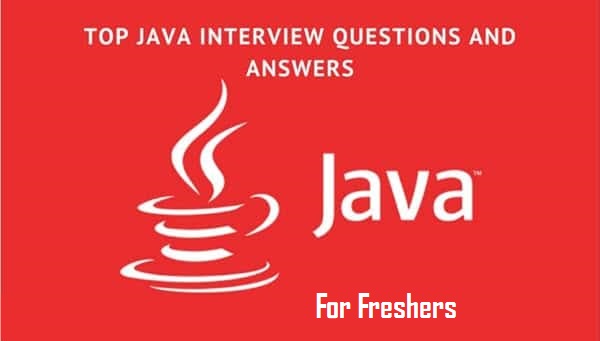Q1. What is the difference between an Inner Class and a Sub-Class?
Ans: An Inner class is a class which is nested within another class. An Inner class has access rights for the class which is nesting it and it can access all variables and methods defined in the outer class.
A sub-class is a class which inherits from another class called super class. Sub-class can access all public and protected methods and fields of its super class.
Q2. What are the various access specifiers for Java classes?
Ans: In Java, access specifiers are the keywords used before a class name which defines the access scope. The types of access specifiers for classes are:
1. Public : Class,Method,Field is accessible from anywhere.
2. Protected:Method,Field can be accessed from the same class to which they belong or from the sub-classes,and from the class of same package,but not from outside.
3. Default: Method,Field,class can be accessed only from the same package and not from outside of it's native package.
4. Private: Method,Field can be accessed from the same class to which they belong.
Q3. What's the purpose of Static methods and static variables?
Ans: When there is a requirement to share a method or a variable between multiple objects of a class instead of creating separate copies for each object, we use static keyword to make a method or variable shared for all objects.
Q4. What is data encapsulation and what's its significance?
Ans: Encapsulation is a concept in Object Oriented Programming for combining properties and methods in a single unit.
Encapsulation helps programmers to follow a modular approach for software development as each object has its own set of methods and variables and serves its functions independent of other objects. Encapsulation also serves data hiding purpose.
Q5. What is a singleton class? Give a practical example of its usage.
A singleton class in java can have only one instance and hence all its methods and variables belong to just one instance. Singleton class concept is useful for the situations when there is a need to limit the number of objects for a class.
The best example of singleton usage scenario is when there is a limit of having only one connection to a database due to some driver limitations or because of any licensing issues.
Q6. What are Loops in Java? What are three types of loops?
Ans: Looping is used in programming to execute a statement or a block of statement repeatedly. There are three types of loops in Java:
1) For Loops
For loops are used in java to execute statements repeatedly for a given number of times. For loops are used when number of times to execute the statements is known to programmer.
2) While Loops
While loop is used when certain statements need to be executed repeatedly until a condition is fulfilled. In while loops, condition is checked first before execution of statements.
3) Do While Loops
Do While Loop is same as While loop with only difference that condition is checked after execution of block of statements. Hence in case of do while loop, statements are executed at least once.
Q7: What is an infinite Loop? How infinite loop is declared?
Ans: An infinite loop runs without any condition and runs infinitely. An infinite loop can be broken by defining any breaking logic in the body of the statement blocks.
Infinite loop is declared as follows:
for (;;)
{
// Statements to execute
// Add any loop breaking logic
}
Q8. What is the difference between continuing and break a statement?
Ans: break and continue are two important keywords used in Loops. When a break keyword is used in a loop, the loop is broken instantly while when the continue keyword is used, the current iteration is broken and the loop continues with the next iteration.
In below example, Loop is broken when counter reaches 4.
for (counter = 0; counter & lt; 10; counter++)
system.out.println(counter);
if (counter == 4) {
break;
}
}
In the below example when counter reaches 4, loop jumps to next iteration and any statements after the continue keyword are skipped for current iteration.
for (counter = 0; counter < 10; counter++)
system.out.println(counter);
if (counter == 4) {
continue;
}
system.out.println("This will not get printed when counter is 4");
}
Q9. What is the difference between double and float variables in Java?
Ans: In java, float takes 4 bytes in memory while Double takes 8 bytes in memory. Float is a single-precision floating-point decimal number while Double is a double-precision decimal number.
Q10. What is the Final Keyword in Java? Give an example.
Ans: In java, a constant is declared using the keyword Final. Value can be assigned only once and after the assignment, the value of a constant can't be changed.
In the below example, a constant with the name const_val is declared and assigned a value:
Private Final int const_val=100
When a method is declared as final, it can NOT be overridden by the subclasses. This method is faster than any other method because they are resolved at the complied time.
When a class is declared as final, it cannot be subclassed. Example String, Integer, and other wrapper classes.
Other Certification Answers


Comments
Post a Comment